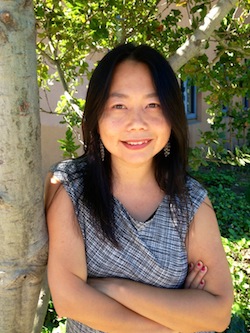
Professor Hsueh's research focuses on the politics of market reform, comparative capitalism, development, and other areas of international and comparative political economy. Her publications include China’s Regulatory State: A New Strategy for Globalization (Cornell University Press, 2011) and “China and India in the Age of Globalization: Sectoral Variation in Postliberalization Reregulation,” Comparative Political Studies 45 (2012): 32-61. She received her Ph.D. from U.C. Berkeley and has served as a Hayward R. Alker Postdoctoral Fellow at the University of Southern California and conducted research as a U.S. Fulbright Scholar at the Institute of World Economics and Politics, Chinese Academy of Social Sciences.
For several weeks in March and April, university students in Taiwan camped out in the legislative and cabinet offices to protest the Cross-Strait Agreement on Trade in Services between China and Taiwan. Joined by hundreds of thousands of Taiwanese, spilling out to the streets, the demonstrators claim President Ma Ying-jeou negotiated the agreement with China without seeking any public input and bypassing the legislative process entirely. Implications of this historical social movement include the functioning of Taiwan’s democratic institutions, which have undergone regime change but democratic consolidation remains in question. Additionally, a potential cross-strait crisis can affect U.S.-China relations in the post-Cold War era. Two important forces are also at play: China’s meteoric playing-by-its-own-rules economic rise, and the evolving Taiwanese national identity after its transition to democracy. This talk will center on the national-specific consequences of liberal trade and democracy for Taiwan’s economic globalization and political development.
 RSS Feed
RSS Feed
